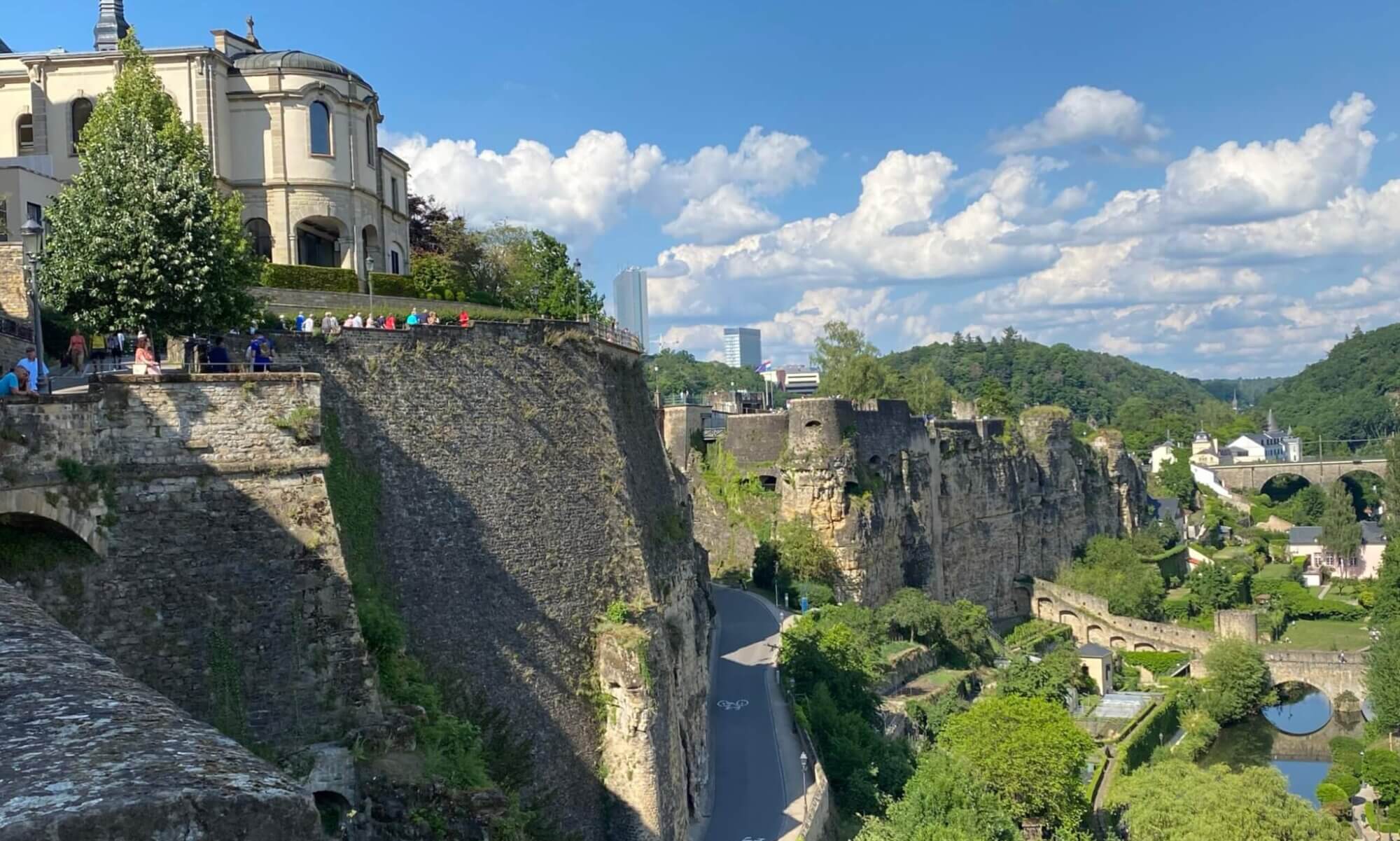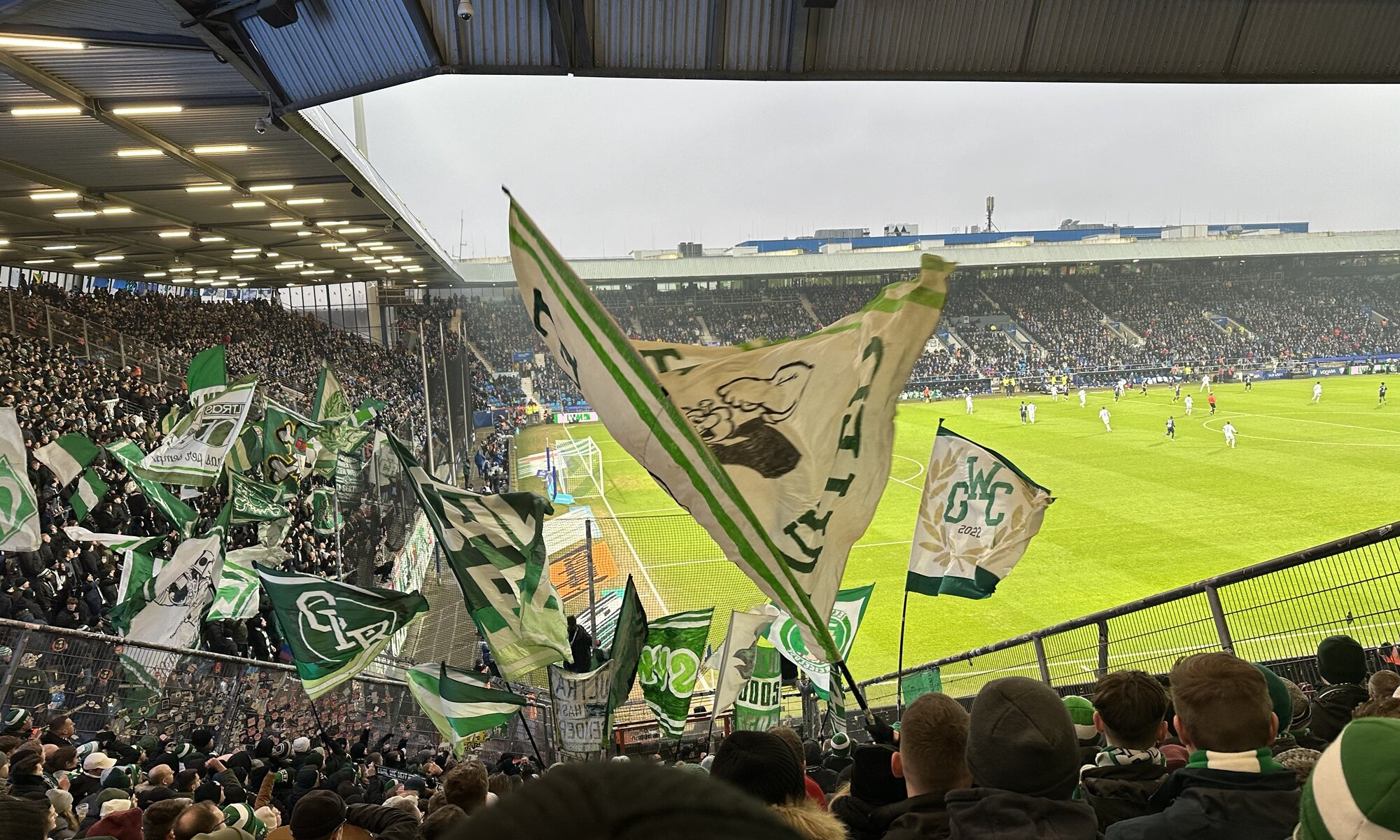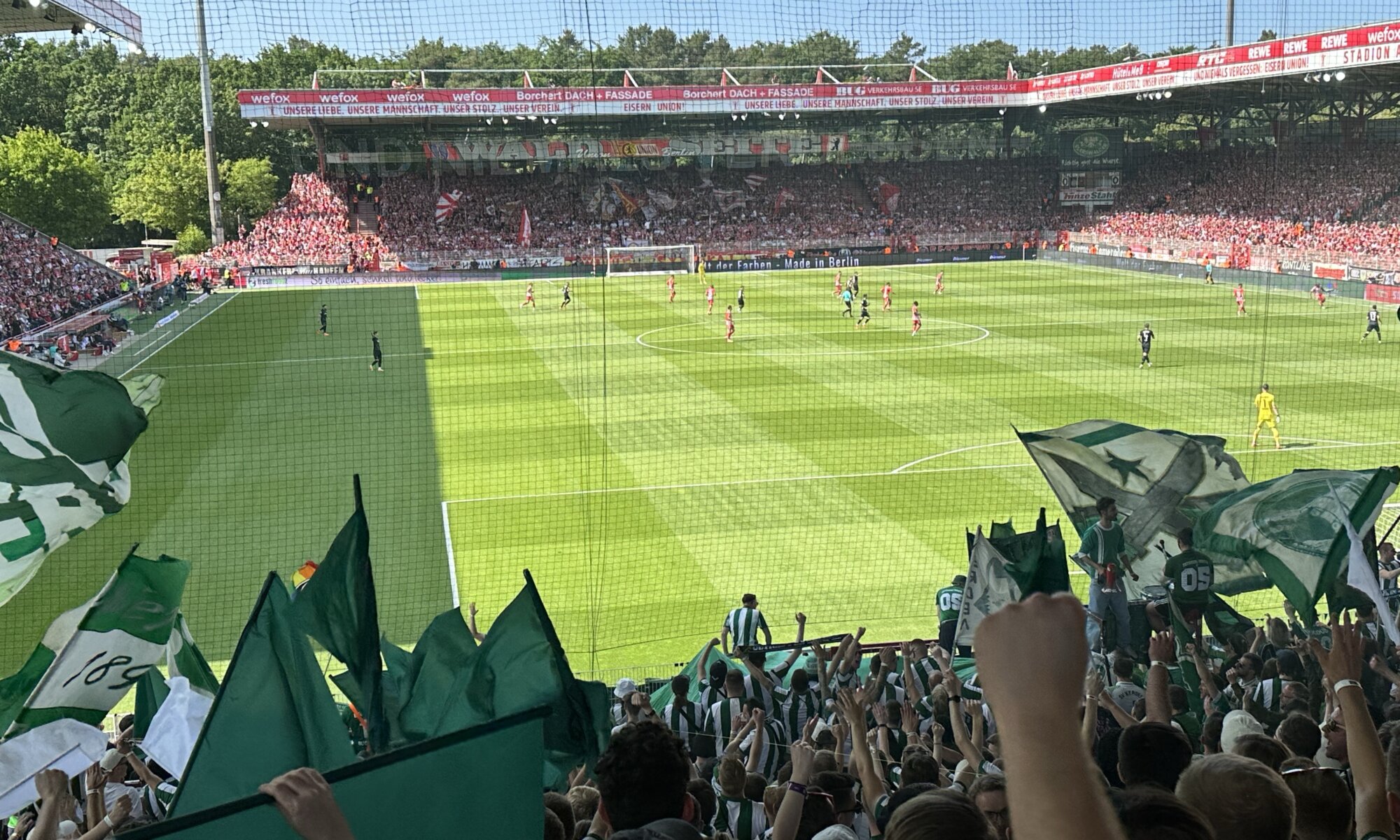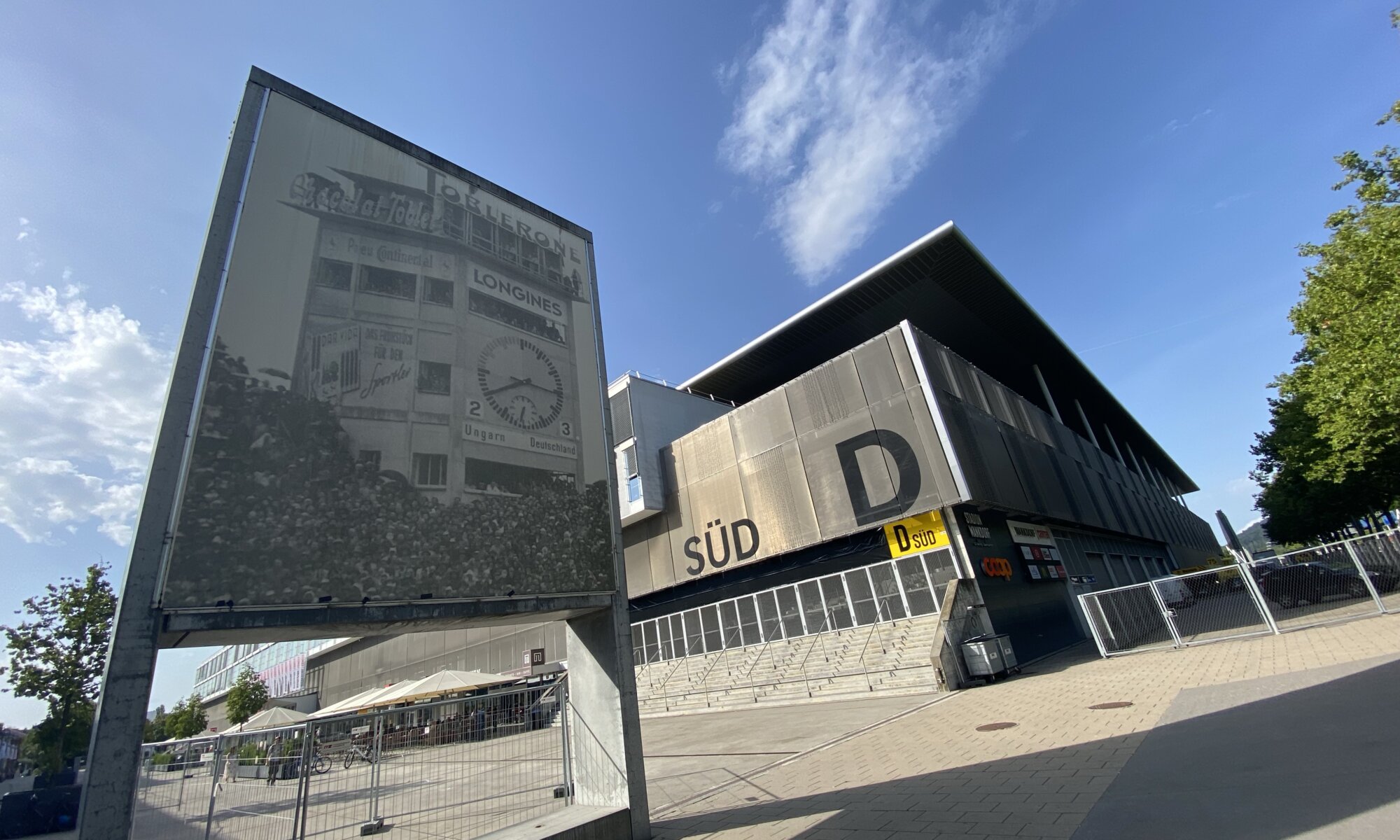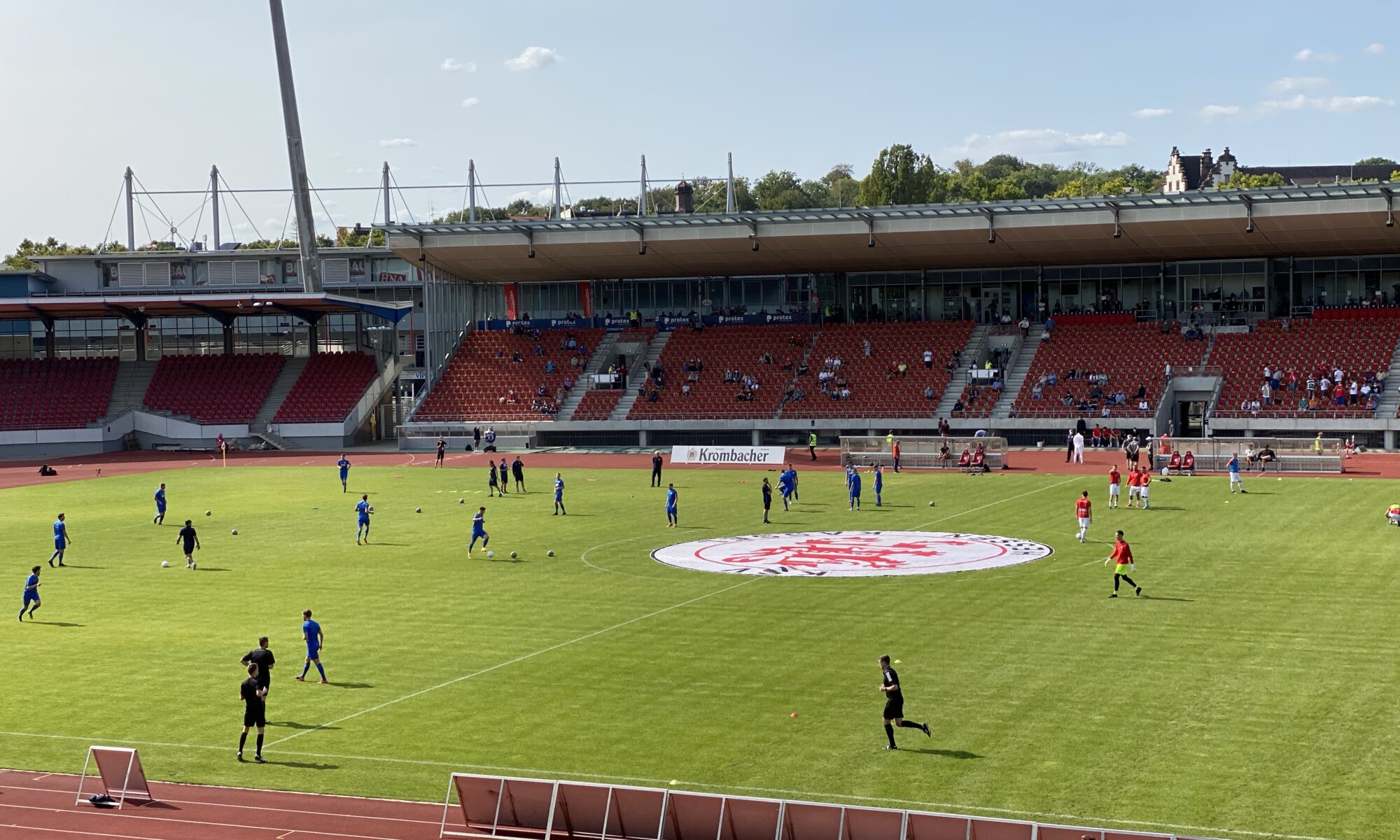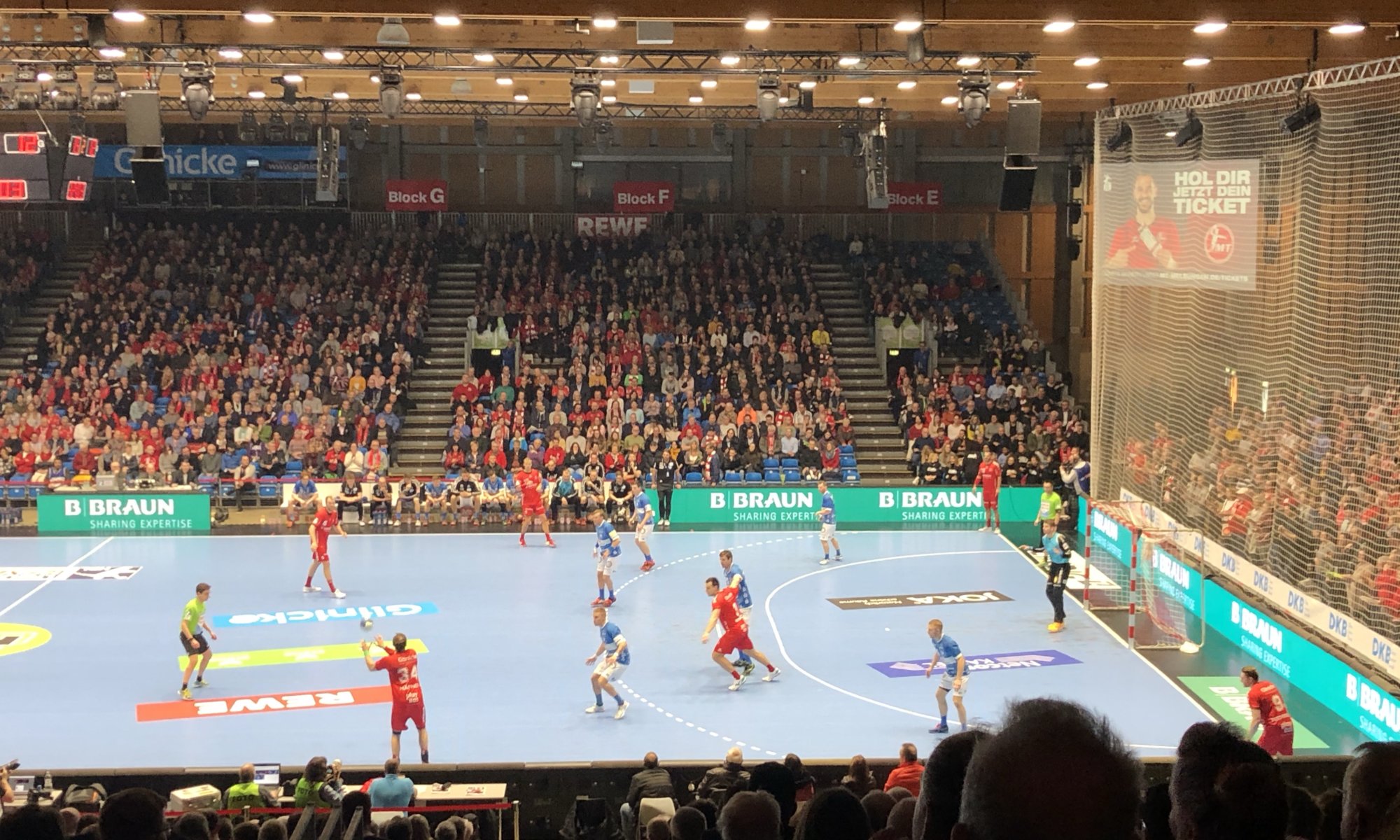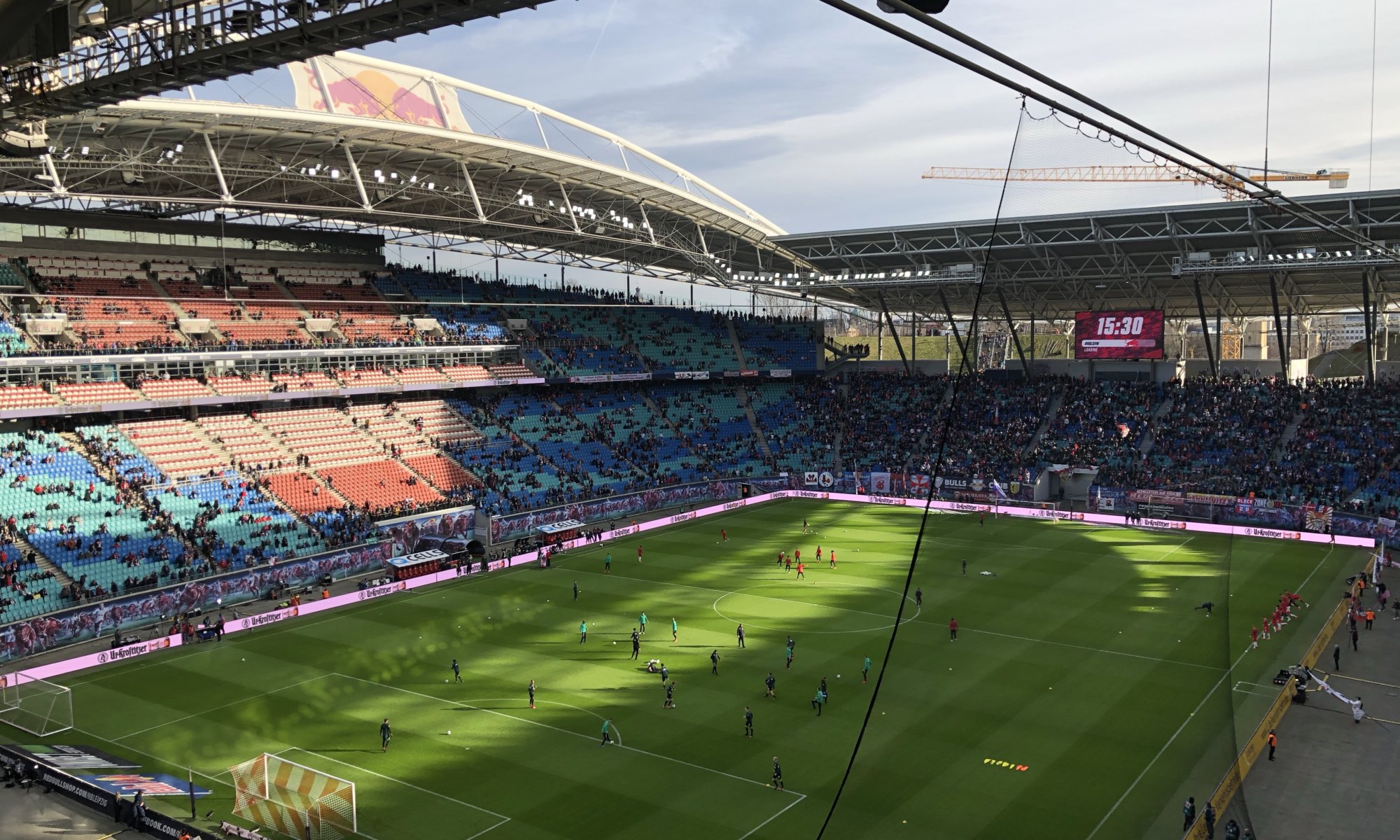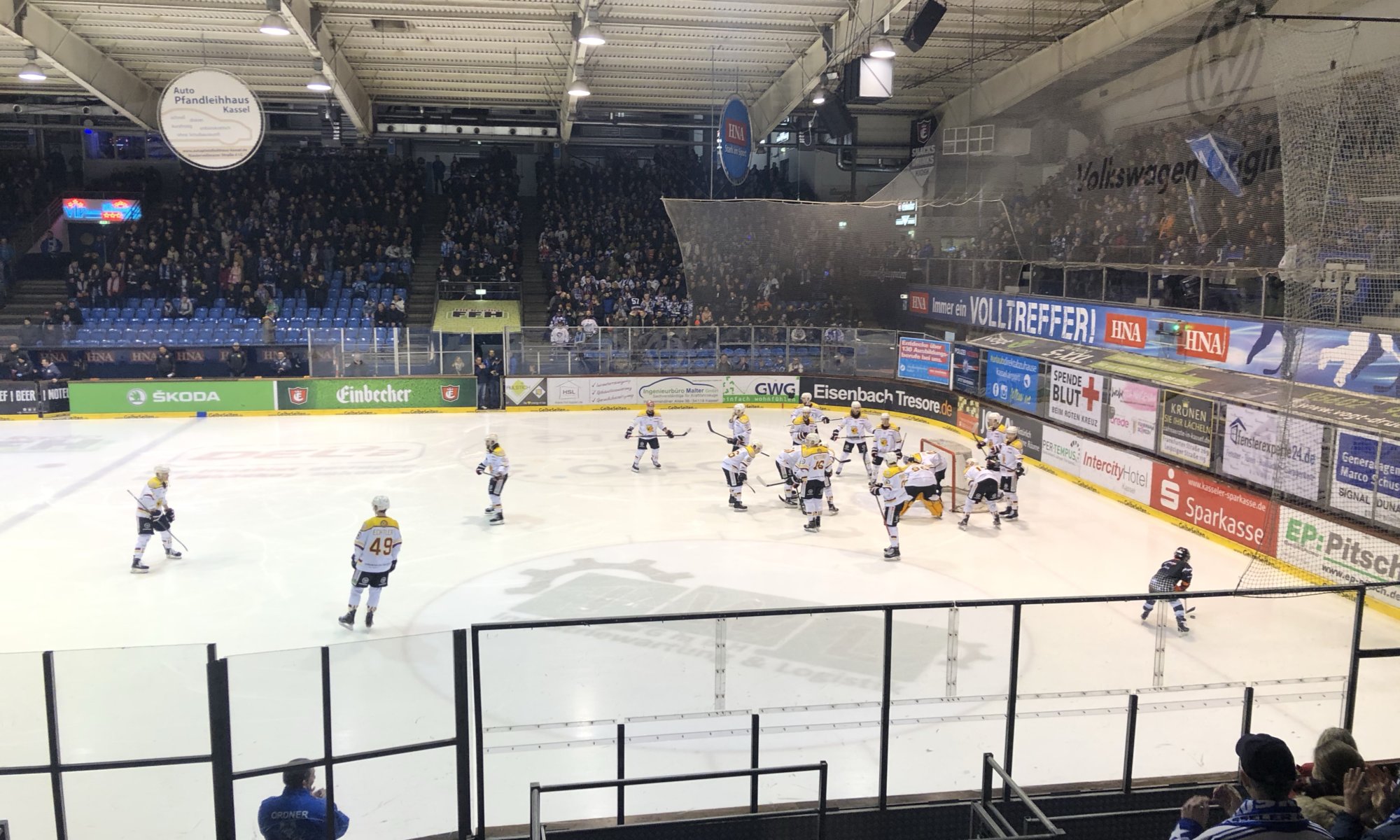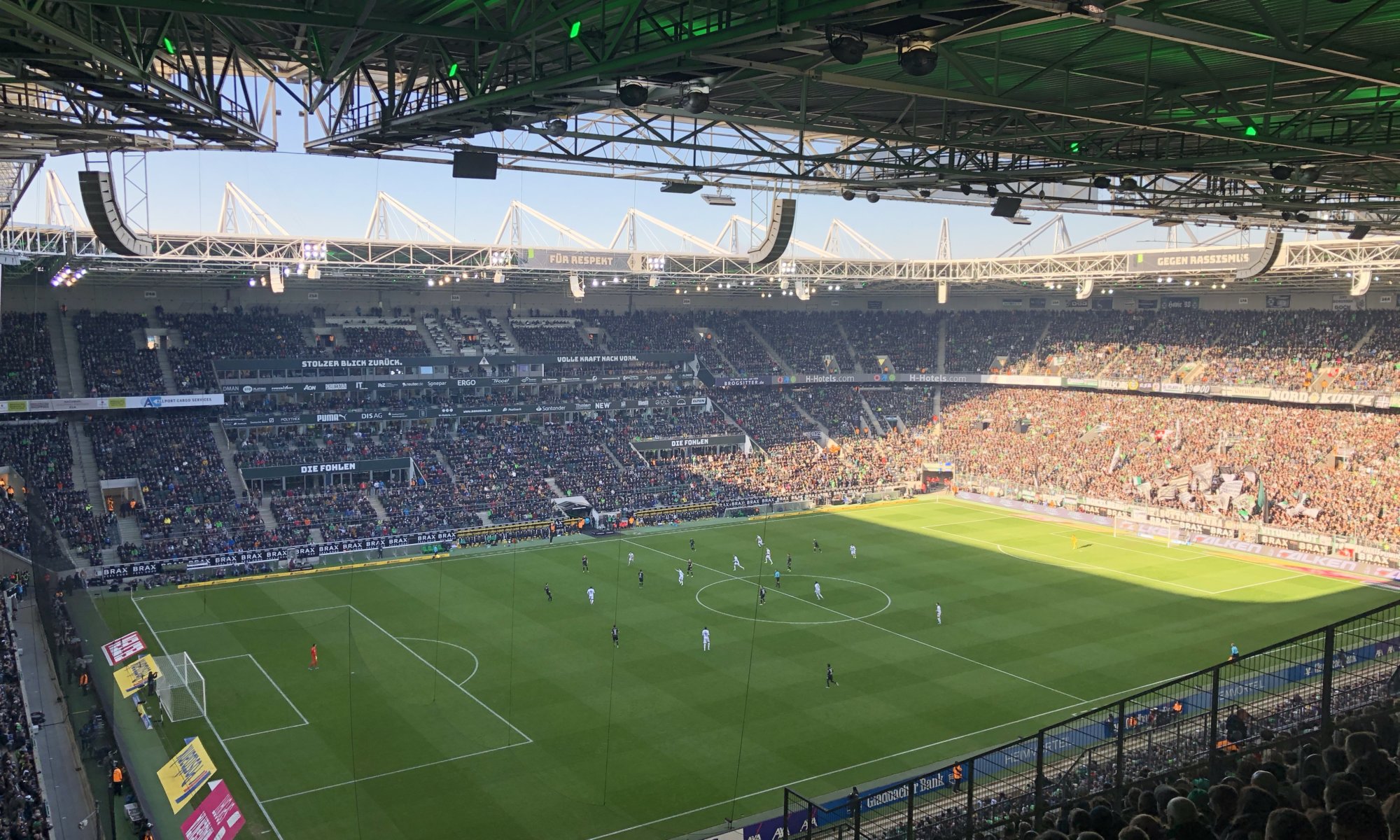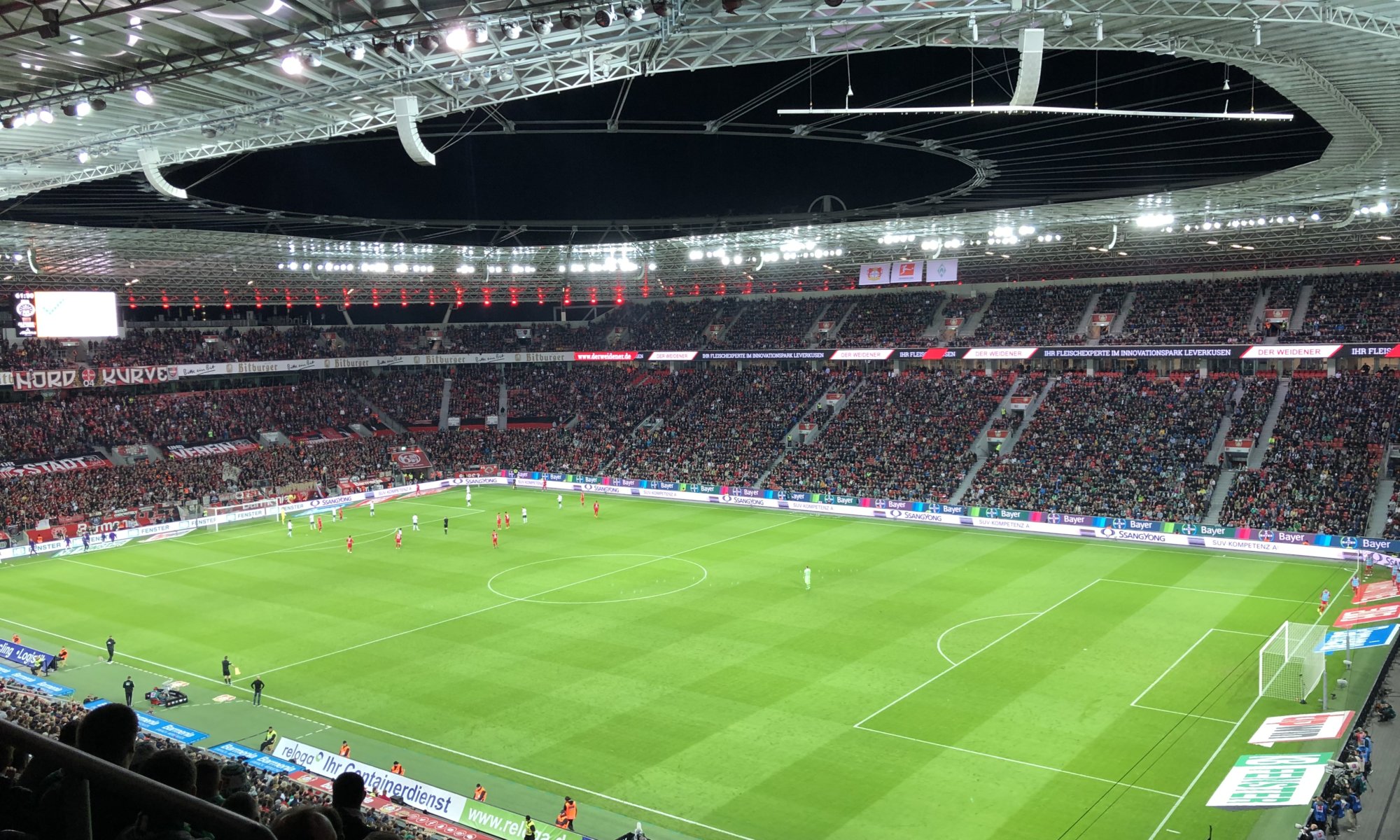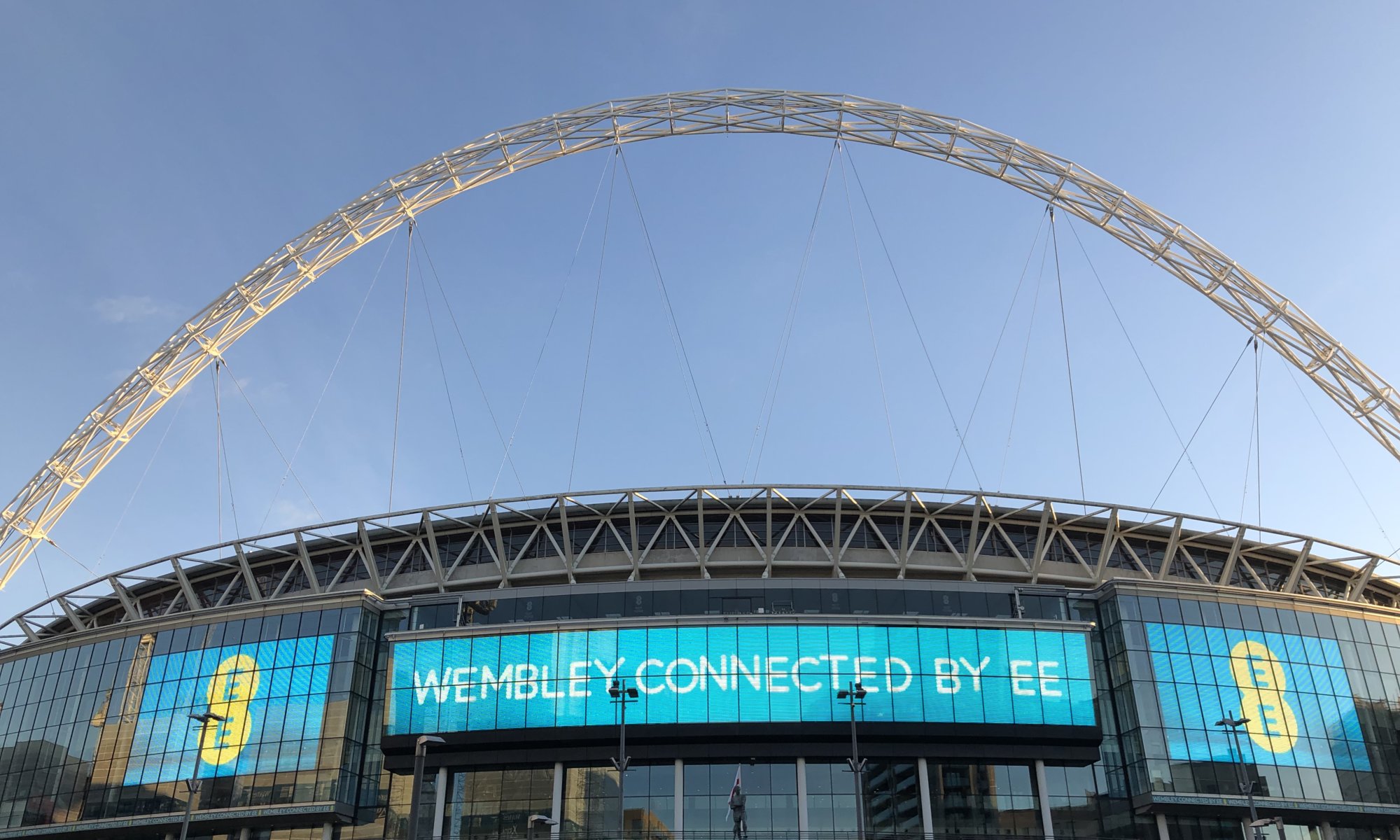The soccer stadium of Bochum is known as the Ruhrstadion or Stadion an der Castroper Straße and is home to the traditional club VfL Bochum (the VfL stands for ‘Verein für Leibesübungen‘ which translates to ‘association for physical exercise‘). The club was created in 1848, the stadium was opened in 1911 – but it was altered and extended several times since then. The Ruhrstadion is pretty close to the city center of Bochum which is pretty much unusual these days; many German stadiums have been shifted out in the past.
Continue reading “Ruhrstadion”An der alten Försterei
There are not many clubs from the East of Germany who currently play or formerly played in the Bundesliga. The division of the country into FRG (BRD) and GDR (DDR) for some decades still today shapes the scoreboard of the first German soccer league. Since 2016 the artificial club RB Leipzig which is a marketing vehicle for an energy drink producer is present, formerly Hansa Rostock, Energie Cottbus und Dynamo Dresden were there (all of them clubs only few people in the West could relate to). But things are getting better: since 2019 the 1. FC Union Berlin is inside the league. And its story reads like a miracle or fairytale.
Continue reading “An der alten Försterei”Wankdorfstadion
The Wankdorfstadion at Bern, Switzerland is a modern soccer stadium and home to the club BSC Young Boys. It is located in the city quarter Wankdorf, was built in 2005 and today it is known under the name Stade de Suisse. 32,000 spectators can watch soccer matches there. But to be honest, the new stadium is not the reason to visit this place – it is rather the old stadium once standing there between 1925 and 2001.
Continue reading “Wankdorfstadion”Hessen Kassel
The KSV Hessen Kassel is a football club with a big history and a stadium (the Auestadion) rather fitting to the past than to the present. It was an obvious idea to watch a match but I simply didn’t do it after moving to Kassel – shortly after I decided to buy a ticket, SARS-CoV-2 appeared and all matches were cancelled or no spectators were allowed. Now the large stadium becomes an advantage: people can watch matches during the pandemic safely while adhering to the distance rules. Against TSV Schott Mainz around 2,000 people (in a stadium for more than 18,000 persons) saw the first home game of the new season.
Continue reading “Hessen Kassel”MT Melsungen
Melsungen is a small city southeast of Kassel, Germany. It is known for its half-timbered houses, big companies and the MT Melsungen, a handball team playing in the Handball-Bundesliga (HBL). The team played sometime in Rotenburg an der Fulda and has now its home in the Rothenbach-Halle at Kassel. Handball was never a team sport I was watching and therefore I had to learn some rules of it in advance.
Continue reading “MT Melsungen”Bull riding
Getting to Leipzig, Germany, for a soccer match brings mixed feelings. If you think of soccer in the city you might think of the formerly very successful VfB Leipzig, the 1. FC Lokomotive Leipzig or the BSG Chemie Leipzig. But of course, you need to discuss RasenballSport Leipzig or short: RB. It is an artificial soccer club founded by energy drink producer Red Bull and I really dislike the idea that a company producing drinks in cans has so much influence in the German Bundesliga – also superseding old clubs with a long history. But RB fulfils the desire of the people in Leipzig to see good soccer matches and as the soccer clubs from the former German Democratic Republic (GDR) are massively underrepresented in the Bundesliga you might also find good aspects in this.
Continue reading “Bull riding”Huskies
For me, it is the first time that I’m living in a city with an ice hockey team. I’ve never seen a match so far but I had the feeling that as an inhabitant of Kassel, Germany, you should have at least once seen a match of the Kassel Huskies. As a soccer aficionado, I had to prepare well to somehow understand the very different rules. And I didn‘t regret getting to the Eissporthalle after seeing a great 6:3 (3:0, 3:3) victory against the ESV Kaufbeuren.
Continue reading “Huskies”Borussia-Park
Borussia Mönchengladbach, the soccer club of Mönchengladbach, Germany, was once playing at an epic stadium called the Bökelberg. Legendary fights are recorded from that times. A lot of stories could be told of that place (like when in 1971 the goal post broke in a match against Werder Bremen). What is left? The Bökelberg still exists even though the stadium was destroyed from 2005 on. It defended itself and withstood the first explosives – but today it is converted into a residential zone. You can still see the terraces and the structure of the stadium.
Continue reading “Borussia-Park”BayArena
The BayArena at Leverkusen, Germany is a soccer stadium I saw multiple times – when passing by on motorway A1 directly next to it. As Leverkusen itself feels like a giant chemical plant with a city around it, I never had the desire to go there. Doing it nevertheless was a good decision as the stadium is really great in its design and services. It is home to the ‘Werkself‘, Bayer 04 Leverkusen, a club owned by this giant chemical plant (the Bayer AG). A club that never won the German championship but ended five times on the second place – and is therefore often called ‘Vizekusen‘.
Continue reading “BayArena”Wembley
Wembley Stadium is the second-largest soccer stadium in Europe, home to the English national team and visible from far away because of its 133 meters high arc. It can host up to 90000 spectators and was opened in 2007 on the grounds of the former stadium (with its iconic twin towers) built in 1923. For soccer fans this is holy ground – not only because of the final of the world championship held here in 1966.
Continue reading “Wembley”